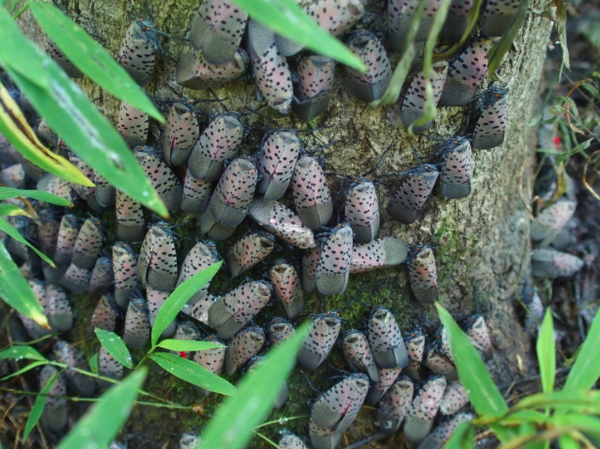A $7.3 million grant from the U.S. Department of Agriculture will help Penn State and other institutions advance research into eradication of the invasive spotted lanternfly.
The grant comes as the destructive insect continues to spread in Pennsylvania, establishing populations in 14 counties across the state.
The National Institute of Food & Agriculture, which is providing the grant, will bring in an additional $5 million in matching support from Pennsylvania growers and landowners who are willing to participate in Penn State's research.
- RELATED ARTICLES
- Spotted lanternfly mania has hit more than the trees
- USDA scientists import wasps from China to battle the spotted lanternfly invasion
- Berks County fungi could help 'decimate' spotted lanternflies in Pennsylvania, research finds
“I am extremely grateful to the USDA for this funding, as well as the growers and landowners who pledged to allow us use of their farms for this project,” said Julie Urban, the project's lead entomologist. “Our partnerships with them and other impacted stakeholders are key to arriving at strategies for sustainable, long-term management of this pest.”
The spotted lanternfly, native to Asia, was first discovered in the United States in Berks County, Pennsylvania, in 2014. It has since spread to parts of Maryland, Delaware, New Jersey and Virginia.
While the insect prefers feasting on the sap of the tree of heaven, it also threatens vital crops in Pennsylvania's nursery, hardwood, tree fruit and grape industries, which account for about $18 billion of the state's economy.
When lanterflies weaken crops, they leave behind a sugary excrement called honeydew, which promotes growth of a mold that further harms agriculture and attracts other insects.
More than 150 researchers in Pennsylvania already have been involved in working on eradication strategies through the Penn State Extension program, whose local outreach has helped identify the spread of the spotted lanternfly.
With the USDA grant, Penn State will quantify the insect’s impact on at-risk specialty crops, develop management tactics, perform fundamental research on the pest's biology and ecology, and deliver immediate management solutions to specialty-crop stakeholders.
Other institutions partnering in the research include Virginia Tech, the University of Delaware, the University of Rhode Island, Temple University, Rutgers University, Cornell University, the USDA-Agricultural Research Service, the USDA-Animal and Plant Health Inspection Service and the Northeastern IPM Center.

